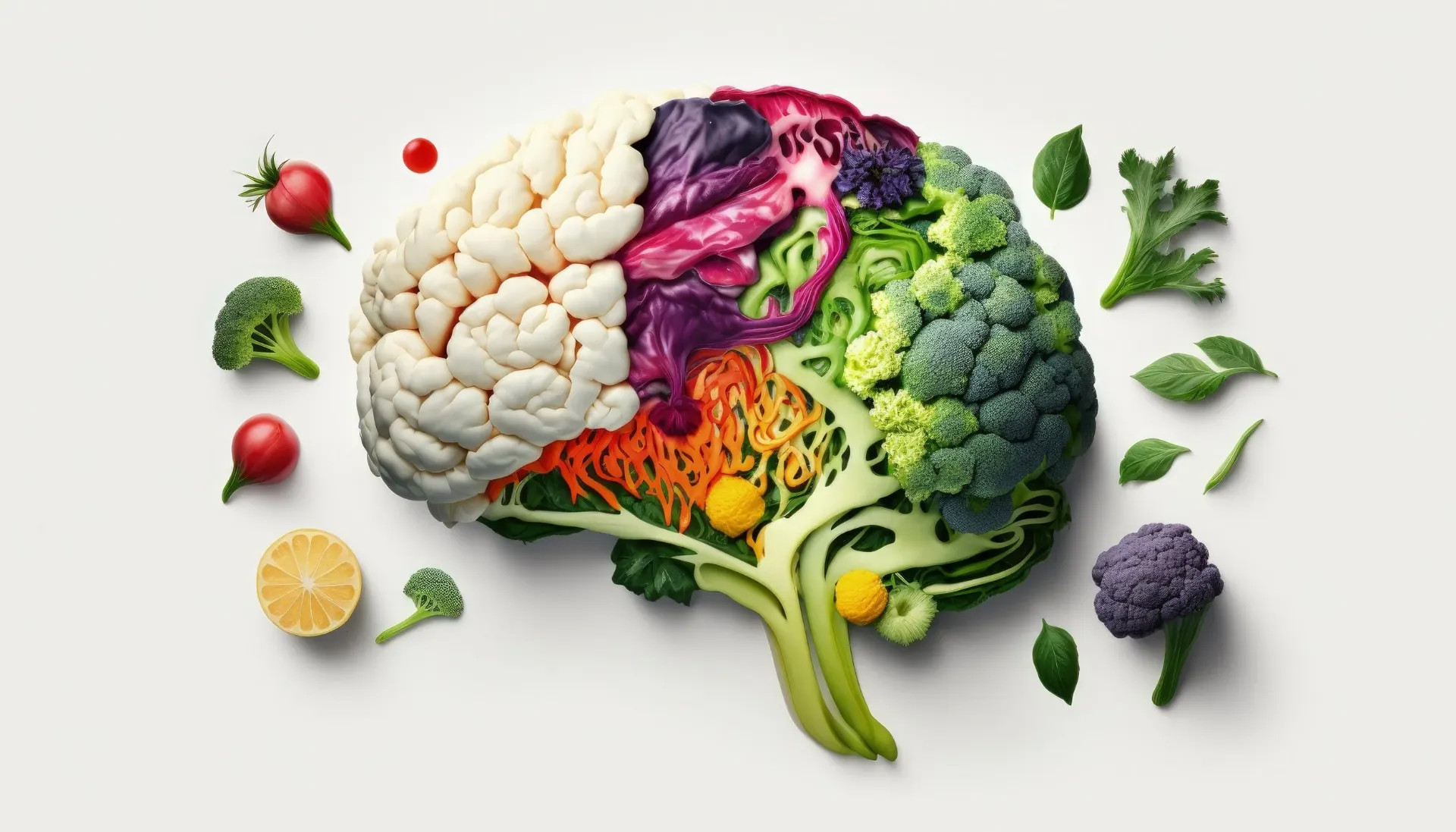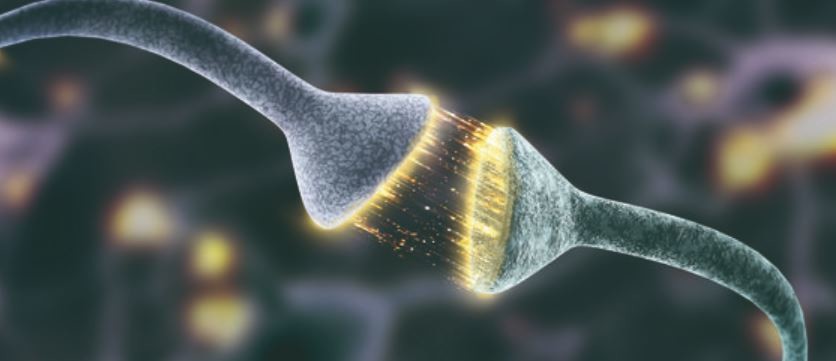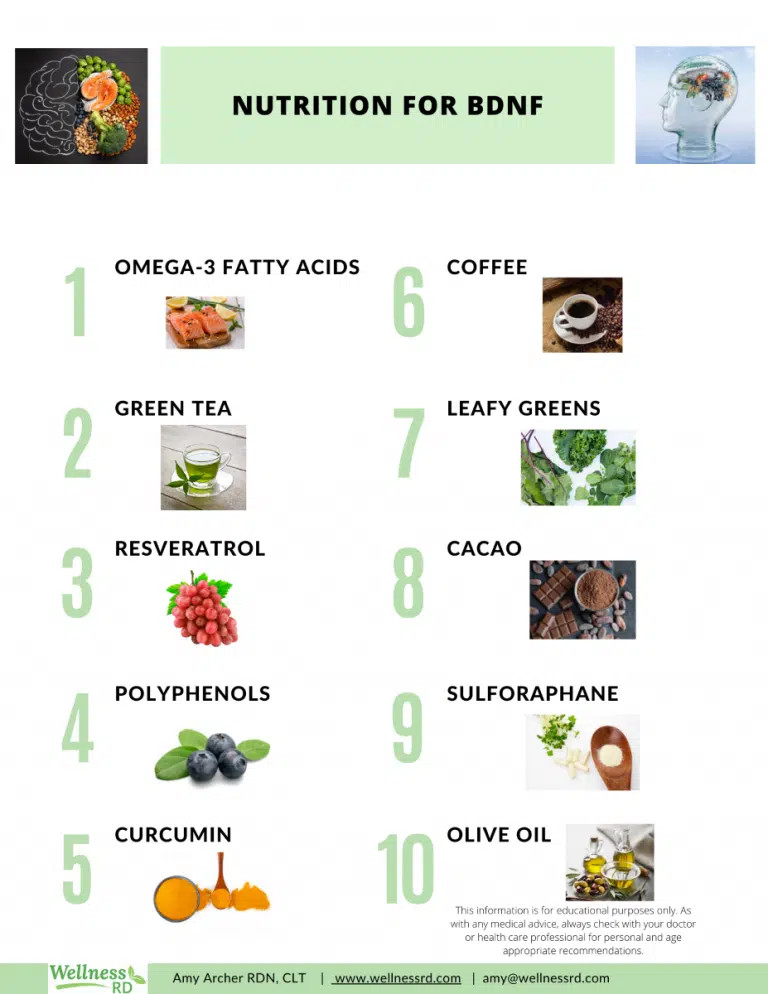
Nutrition for Brain Health and Neuroplasticity
Introduction

In a world full of processed foods, mindless entertainment, and addictive shopping, it can be challenging to maintain one's brain health. Our society values foods that are high in sugar, salt, and saturated fat, but low in essential vitamins and minerals. Of course, one may argue that it's unnecessary to worry about healthy food if you can supplement your diet with vitamins and exercise. However, I am going to argue that diet is one of the most crucial factors in maintaining your mental health and focus. There are many self-help books, nutrition guides, and new advertisements giving a magic pill for all nutrition problems. But it isn't so easy because our research is just catching up, so there isn't a clear answer. My goal in this blog is to provide the scientific basis for how certain foods can enhance mood and cognitive function. By understanding the mechanisms by which these foods impact us, we can appreciate the importance of diet and nutrition in our lives. I will specifically focus on a diet that improves neuroplasticity, which is the ability of the brain to rewire in positive ways.
Neuroplasticity
Neuroplasticity is an adaptive process that changes neural connections in response to environmental or physiological factors. Memory, mood, and concentration are all based on effective synaptic communication between neurons. These neurons transmit signals using chemical messengers such as serotonin, dopamine, and acetylcholine, which then bind to specific receptors on the postsynaptic neuron. If the neuron reaches a threshold for an action potential, the signal will be propagated; otherwise, it will be inhibited. Memory formation occurs through a concept of long-term potentiation (LTP), where repeated activation of neurons associated with a memory leads to an increase in receptor density. More receptors allow the postsynaptic neuron to reach the threshold for quicker activation, thereby leading to faster cognitive processes. This rapid activation of two neurons potentiates their connection. In other words, neurons that fire together wire together by reducing the threshold for signal propagation. On the other hand, if two neurons are firing out of sync, their synaptic connection weakens, leading to long-term depression (LTD). This means it is harder to activate a neuron when its partner is activated. This is evident in cognitive decline, where new memories aren't retained due to impaired neural synchronization. Research suggests that neurons also have metaplasticity, where the history of a neuron's LTP and LTD will impact its future ability to change itself. A neuron with an LTP history will have a harder time inducing more LTP, whereas a neuron with an LTD history will have an easier time conducting LTP with new changes. A real-life example of this is that memorizing a new fact leads to a strengthened connection between hippocampal neurons, while old, unnecessary memories with no emotional content tend to have weakened synaptic connections.
Hebbian Plasticity:

"When an axon of cell A repeatedly excites cell B, growth processes occur in one or both cells such that A's efficiency in firing B increases."- Donald Olding Hebb
Brain-derived neurotrophic factor (BDNF) is a key player in changing a neuron's genetic mechanism to alter synaptic plasticity. Lower BDNF levels have been associated with depression and neurodevelopmental conditions such as autism and ADHD. BDNF activates transcription factors that increase the production of AMPA receptors and other scaffolding proteins responsible for higher synaptic plasticity. It also increases dendritic growth and protects against oxidative stress, both of which help fight against neurodegeneration and psychological stress. Since BDNF is an organic molecule, we can't just take it in the form of a pill. However, there are supplements and food products that increase BDNF expression in neurons.
Foods that increase BDNF:
Omega-3s are polyunsaturated fats that help with neurogenesis and maintain the outer lipid layer (myelin) important for neural signaling. Neurological conditions like multiple sclerosis and chronic encephalitis can damage the integrity of myelin and slow down how quickly neurons communicate with one another. Therefore, it is important to maintain a healthy intake of omega-3-rich fats that help prevent future autoimmune conditions. Omega-3s also have a positive feedback on the expression of BDNF, which in turn helps neuroplasticity. Two of the most common Omega-3 fatty acids found in our diet are docosahexaenoic acid (DHA) and eicosapentaenoic acid (EPA). Here are some foods that have high DHA/EPA:
Marine style diet: Salmon, sardines, and mackerel have the highest quantity of DHA per serving size. Fish oil is a common supplement advertised for cognitive boost.
Vegetarian style diet: Algal oil, flax seeds, chia seeds, and walnuts are great alternatives for those who don't consume fish products.

Credits: Amy Archer, 2022
Other snacking items that increase BDNF expression:
Dark chocolate
Turmeric+ black pepper
Green Tea
Red and Blue Berries
Leafy Greens
Coffee
Eggs
Supplements for Brain Health:
Fish Oil/ Vegan Algal Oil: Helps increase DHA/EPA involved in myelin production, slowing cognitive decline and oxidative stress. Increases BDNF expression.
Creatine: Increases phosphate storage in ATP and improves brain alertness and memory
Lion's Mane Mushroom: Boosts BDNF and supports oligodendrocytes' function.
Ginkgo Biloba: an herbal antioxidant that reduces inflammation and increases blood flow to the brain. Balances glutamate-GABA circulation in CSF.
Magnesium L Threonine: Upregulates the CREB-BDNF pathway to increase NMDA receptors involved in long-term memory. Crosses blood blood-brain barrier to have a local impact.
These supplements are geared towards fighting aging and cognitive decline. But they can also be used by the younger population to improve memory and concentration. No pill will turn your brain into a supercomputer, but it will help battle against the negative effects of chronic stress and sleep deprivation. Balancing supplements with real fruits, vegetables, and nuts will maximize brain health and cognitive function.
Meal plan focused on brain health (vegetarian):
Wake-up drink: Matcha Green tea, Golden milk (turmeric and ginger), Lion's mane coffee
Breakfast: Berries/ banana smoothie with creatine, scrambled eggs with avocado, Greek yogurt with chia/ flax seeds and walnuts.
Lunch: Spinach and chickpea salad, Hummus wrap with stuffed bell peppers, turmeric lentil curry with quinoa.
Dinner: Ginger Stir Fry (broccoli, edamame, tofu, carrots), Eggplant parmesan, Rice, and potato salad.
Snacks: Nuts (walnuts, pistachios, soaked almonds), Flaxseed crackers, Pumpkin seeds, Dark Chocolate, and walnut cookies
Supplements: Algal/ Fish oil (DHA), Lion's Mane Mushroom (enhances BDNF), Ashwagandha (lowers cortisol)
In conclusion, there are three mechanisms of improving brain health using diet: 1. Increasing BDNF to facilitate LTP and memory consolidation, 2. Supporting oligodendrocytes in making myelin, 3. Mitigating oxidative stress and inflammation to promote neurogenesis. Research has also shown that exercise, cognitive challenges (reading, puzzles), and meditation can further enhance neuroplasticity.
